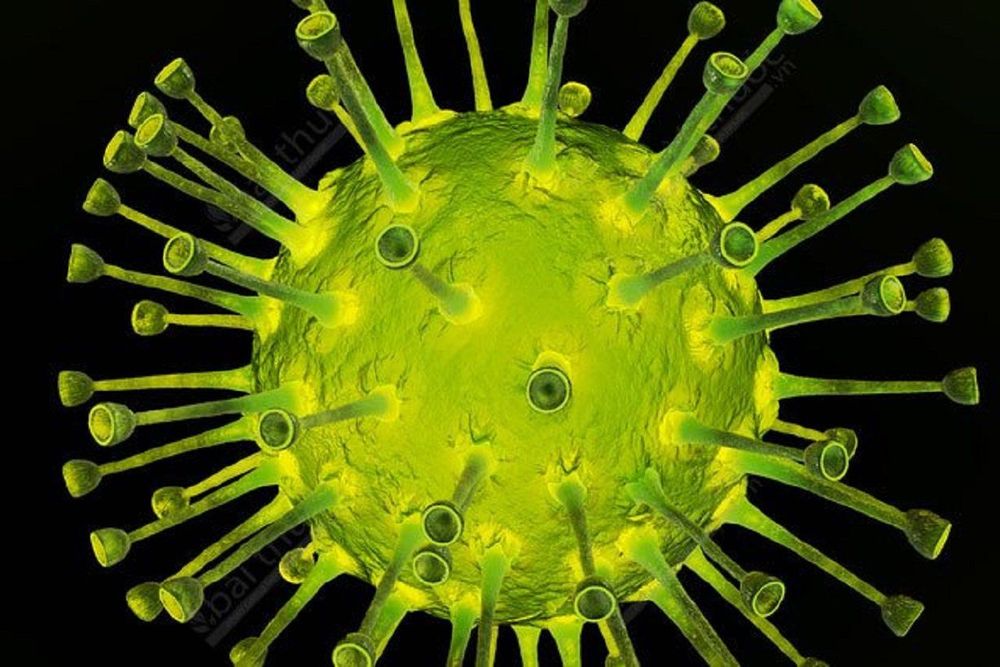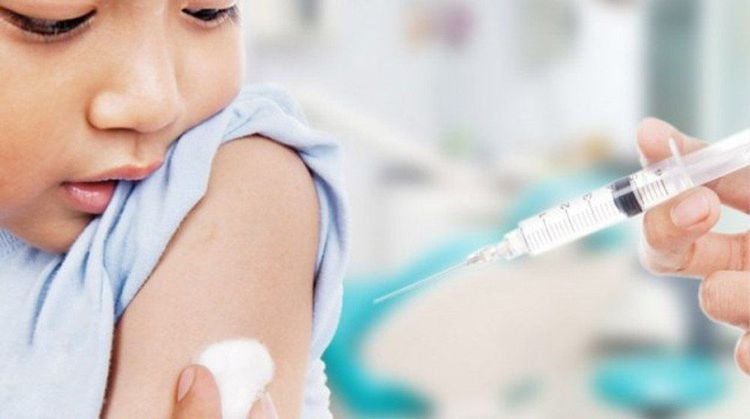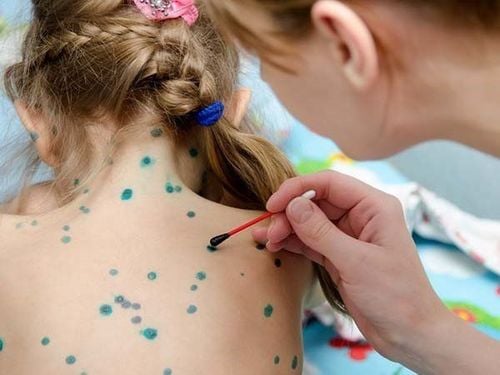This article is professionally consulted by a doctor from the Department of Outpatient and Internal Medicine, Vinmec Hai Phong International General Hospital.
Chickenpox can outbreak into an epidemic, with increased danger when the primary affected group is children. Parents should equip themselves with knowledge about disease and its transmission methods to know how to protect their children's health.
1. How long is the incubation period for chickenpox?
Chickenpox is a disease caused by the chickenpox virus (Varicellavirus), which occurs in children, this virus is also the cause of shingles in adults. The disease progresses acutely with mild fever and rash. The rash grows in many episodes on the same area of the skin, so they can be seen at different ages from papules, fluid-filled blisters, cloudy blisters to scabies.
Similar to bacterial infection spread through airborne droplets, the incidence of chickenpox is higher during the colder months. Chickenpox outbreaks also have a certain cyclical nature like measles outbreaks.
Incubation period: 2 to 3 weeks, usually 14-16 days.
Transmission period: The longest is 5 days, but usually 1-2 days before the rash and no more than 5 days after the appearance of the first blisters. Transmission may last longer in patients with altered immunity. The secondary attack rate in susceptibles living in the same family is 70-90%. Patients with shingles can transmit the disease for a week after the rash develops. A susceptible individual may develop the disease 10-21 days after exposure.

2. How is chickenpox transmitted?
Chickenpox is transmitted through the following routes:
- Direct person-to-person contact.
- Airborne transmission via small respiratory droplets or fluid from blisters.
- Indirect transmission through objects recently contaminated with blister fluid or mucosal secretions.
In individuals with chickenpox, the disease can be transmitted from 1-2 days before the rash appears until all the blisters have crusted over. Approximately 90% of those who have never had chickenpox will contract the disease if exposed to an infected person.
3. Is chickenpox dangerous?
Like other diseases, if not treated promptly, chickenpox can lead to several dangerous complications:
- Skin infections at the site of the blisters: This is a mild complication, not life-threatening, but it may leave scars.
- Bacteria can enter the bloodstream from the blisters, causing sepsis.
- Pneumonia, encephalitis, cerebellitis,...: There are life-threatening complications or may leave long-term sequelae.
- Shingles: Even after the patient has recovered, the varicella-zoster virus remains dormant in the nerve ganglia in an inactive form (dormant). 10, 20, or even 30 years later, when favorable conditions arise (weakened immune resistance, certain diseases,...), this virus can reactivate and become a causative factor for shingles (also known as herpes zoster).
- The disease is particularly dangerous for pregnant women. In the first trimester of pregnancy, the varicella virus in the mother's body can cause miscarriage, or when born the child will have congenital chickenpox with various birth defects such as microcephaly (small head), limb contractures, cerebral palsy, congenital scars,...In the later stages of pregnancy or after birth, maternal chickenpox can be transmitted to the baby, causing extensive blistering and increasing the risk of complications like pneumonia, respiratory infections…
4. How to prevent chickenpox

Vaccination against chickenpox is an effective and long-lasting method that helps the body develop antibodies to protect against the varicella virus. The chickenpox vaccine provides durable protection. Approximately 90% of vaccinated individuals have complete immunity to the disease. The remaining 10% may still develop chickenpox after vaccination, but these cases are generally mild, with fewer papules and no complications.Vaccination protocol: The varicella vaccine is a live attenuated vaccine. For children aged 12 months to 12 years, a single 0,5 ml dose is administered subcutaneously. For individuals aged 13 years and older, two doses are given 4-8 weeks apart.
Additionally, it is recommended to limit contact with infected individuals to prevent the spread. Cases of chickenpox need to be absent from school or work for 7 to 10 days from the onset of symptoms to avoid spreading it to those around them . Regularly wash hands with soap, use personal items, clean the nose and throat daily with physiological saline. Frequently clean houses, schools, household items with common disinfectants.
The importance of timely vaccination
According to the recommendations of medical experts, even during the outbreak, parents should still take their children to get vaccinated on schedule. Delaying the vaccination schedule can increase the risk of diseases that have been eliminated or cause infectious diseases and superinfections such as influenza, measles, chickenpox, pharyngitis, pneumonia, etc… to become more severe and more difficult to treat.
In the first five years of life, a child’s immune system is still developing, which is why full vaccination is an effective way to strengthen their immune defenses.Parents should pay attention to following the World Health Organization (WHO) and Ministry of Health's recommendations when taking their child for vaccination, such as wearing a mask correctly and washing hands frequently with disinfectant. Additionally, parents should stay informed with accurate information about the Covid -19 vaccine to protect themselves and their families from coronavirus.
In areas without an outbreak, mothers can still take their children for vaccination according to the appropriate vaccination schedule for their age. However, they should avoid crowded places, make an appointment in advance to avoid waiting and go to a trusted healthcare facility with adequate infrastructure.
Compiled source: Department of Preventive Medicine, Ministry of Health
To arrange an appointment, please call HOTLINE or make your reservation directly HERE. You may also download the MyVinmec app to schedule appointments faster and manage your reservations more conveniently.








